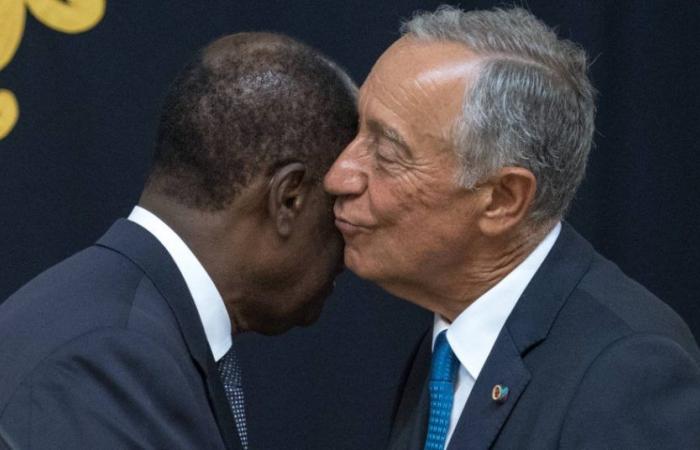Talk is easy – and Marcelo Rebelo de Sousa has a known capacity in this field.
Not that the words of president of Portugal were not important in saying that the country “assumes full responsibility for damages caused” throughout the colonial past. Looking at the past and recognizing historical errors contributes to the advancement of civilization.
But his speech entered the field of unreality that it was necessary to see how to repair “actions that were not punished” and “goods that were looted and were not returned”.
As president, Marcelo, who is called by his first name, has ceremonial functions as head of state and commander of the Armed Forces. When there are new elections, he coordinates with the most voted voters who will form a government. But he does not propose, approve or execute laws, functions reserved for the Assembly of the Republic and the cabinet headed by the prime minister.
What is the possibility that Portugal will “pay the costs” of colonial exploitation, slavery and repression of Brazilian natives – not to mention all the other countries, in Africa and Asia, that were part of the Portuguese overseas empire?
Not all the pieces in the Royal Treasury Museum, opened with an exhibition called “Gold and diamonds from Brazil”, including the Bragança Diamond, extracted from Minas Gerais with its 1,680 carats, would come remotely close to covering “the costs” of the goods extracted from the colony.
And what about the trafficking of enslaved people that over centuries brought millions into captivity in Brazil?
Continues after advertising
Portugal has 10 million inhabitants and a GDP of 255 billion dollars – half the wealth generated by São Paulo. According to the census, Brazil has 112 million black and brown people, plus 1.6 million indigenous people.
“EXCESSIVE POLICING”
Anyone understands that slavery relegated the black population to a position of extreme disadvantage, even after it ended.
Ideally, economic development should be the engine to compensate for this disadvantage, but even in a country with the strength of the United States, this mechanism was far from working and, statically, black people continue to have a lower income.
The issue of reparations inflames the United States and ultra-progressive California aims to be the first state to pay reparations.
The study on who would be entitled to compensation alone is more than a thousand pages long. He recommends that descendants of slaves or freed Africans who were in the United States before 1900 receive the payment, which could reach 1.2 million dollars per person. The package also includes reparations for poor medical care, discrimination housing and “excessive policing”.
More than Portugal, a reparations policy, with all the immense controversy it implies, would have to involve the Brazilian State.
Continues after advertising
CASE OF THE TWINS
Marcelo Rebelo obviously doesn’t want to know these minor details. In fact, he is more concerned about what the Portuguese press calls the “case of the Brazilian twins”, two little sisters who received the “most expensive medicine in the world”, called Zolgensma, to treat a rare neurodegenerative disease called spinal muscular atrophy.
The two doses of the medicine cost four million euros and Marcelo is being investigated by the Public Ministry on suspicion of favoritism. In the interview in which he spoke about reparations, he said that he is broken with his son, Nuno Rebelo, who lives in Brazil as marketing director for the energy company EDP and intervened on behalf of the two-year-old children.
The president said he only “passed on” an email from his son and then cut ties with Nuno, who is “51 years old, older and vaccinated”.
The twins’ case inflames public opinion and contributes to the hostile environment that Brazilians, emigrated to Portugal or visitors, constantly face. The great relationships of the past have become just that – the past.
It is a complex situation in which Portuguese people feel invaded and Brazilians feel discriminated against, if not mistreated. Not with all his talk, President Marcelo Rebelo could solve it. There are no magic solutions. Nor repairs.






